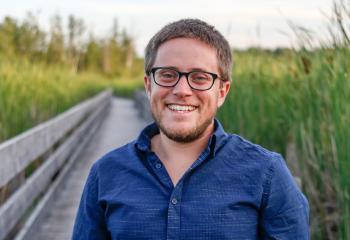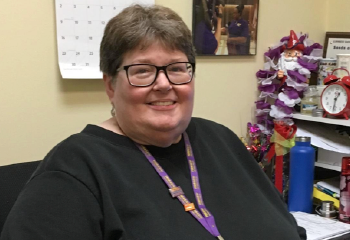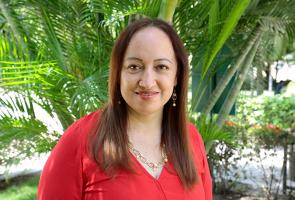Seeing the devastating effects of massive flooding as a public health nurse in Dane County, Wis. years ago mobilized Jessica LeClair to act on climate. Now, LeClair is using Nurses Climate Challenge materials to educate and inspire her students at the University of Wisconsin-Madison to address climate change and health equity.
—
While she was working as a public health nurse in Dane County, Wis. about eight years ago, Jessica LeClair had a “light bulb” moment when she realized how climate change was affecting health in her community.
LeClair says the county had never really recovered from massive flooding three years before. She spoke with a school principal at the time who informed her more and more students were becoming sick. In fact, the principal stressed an increasing number of students were diagnosed with asthma and respiratory illnesses each year.
The families she spoke with shared, since the flooding, their basements had mold and were boarded up. Every time it rained in the area, it would cause the basements to flood again. These stories caused her to think about how the impacts of climate change – like extreme weather events – were detrimental to human health.
In particular, she notes people with lower income and people of color were disproportionately experiencing flooding, along with other negative health effects of climate change. The same disparities still exist today, she said.
As both a nurse and an educator, LeClair is supporting future health professionals and working to make Dane County more sustainable and equitable. LeClair currently works as a clinical instructor at University of Wisconsin-Madison.
She sits on two climate-focused groups, the Dane Country climate council’s community team and a City of Madison County committee tasked with informing the counties on climate policy and action plans.
“I’ve always been interested in the environment and working to protect the environment,” LeClair says. “A part of me has always tried to reconcile my two interests in health and the environment.”
Now, LeClair wants to instill a sense of urgency in her students about addressing climate change through nursing and health care.
She was given leeway to incorporate discussion on environmental health concepts, public health, and climate change into her curriculum. When she first interviewed for the clinical instructor role at University of Wisconsin-Madison they said, “we want this information in our classroom.”
LeClair was excited to join the Nurses Climate Challenge in 2018. She says the Nurses Climate Challenge is a “great tool” for nurses that are new to learning about climate change and health.
She adds that the Nurses Climate Challenge provides participants with materials nurses can share with their leadership, or in her case, their students.
She introduced the Nurses Climate Challenge to her students last fall. As an assignment, she had her students prepare a presentation, a theoretical pitch for their nurse manager about nursing and climate change.
“I think the challenge is how nurses can address the health effects of climate change on the front lines,” she says. “Hopefully by having this education and knowing what’s possible, nurses will feel better prepared.”
LeClair had one student who thought “why wait?” after learning about the Nurses Climate Challenge. He then took the Nurses Climate Challenge resources to his clinical site and educated his colleagues as a student.
Join the Nurses Climate Challenge, and share this opportunity with your colleagues and students today.




